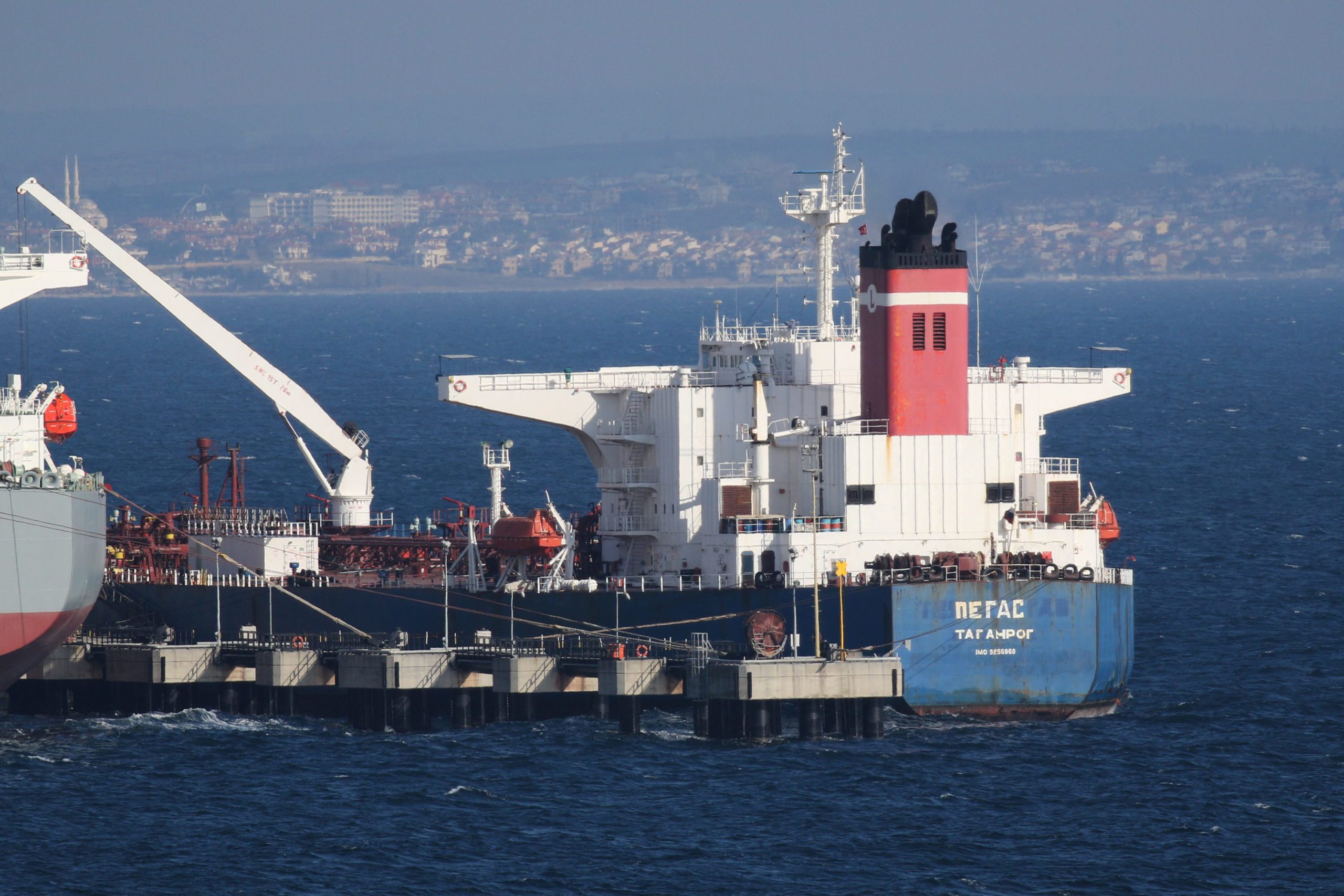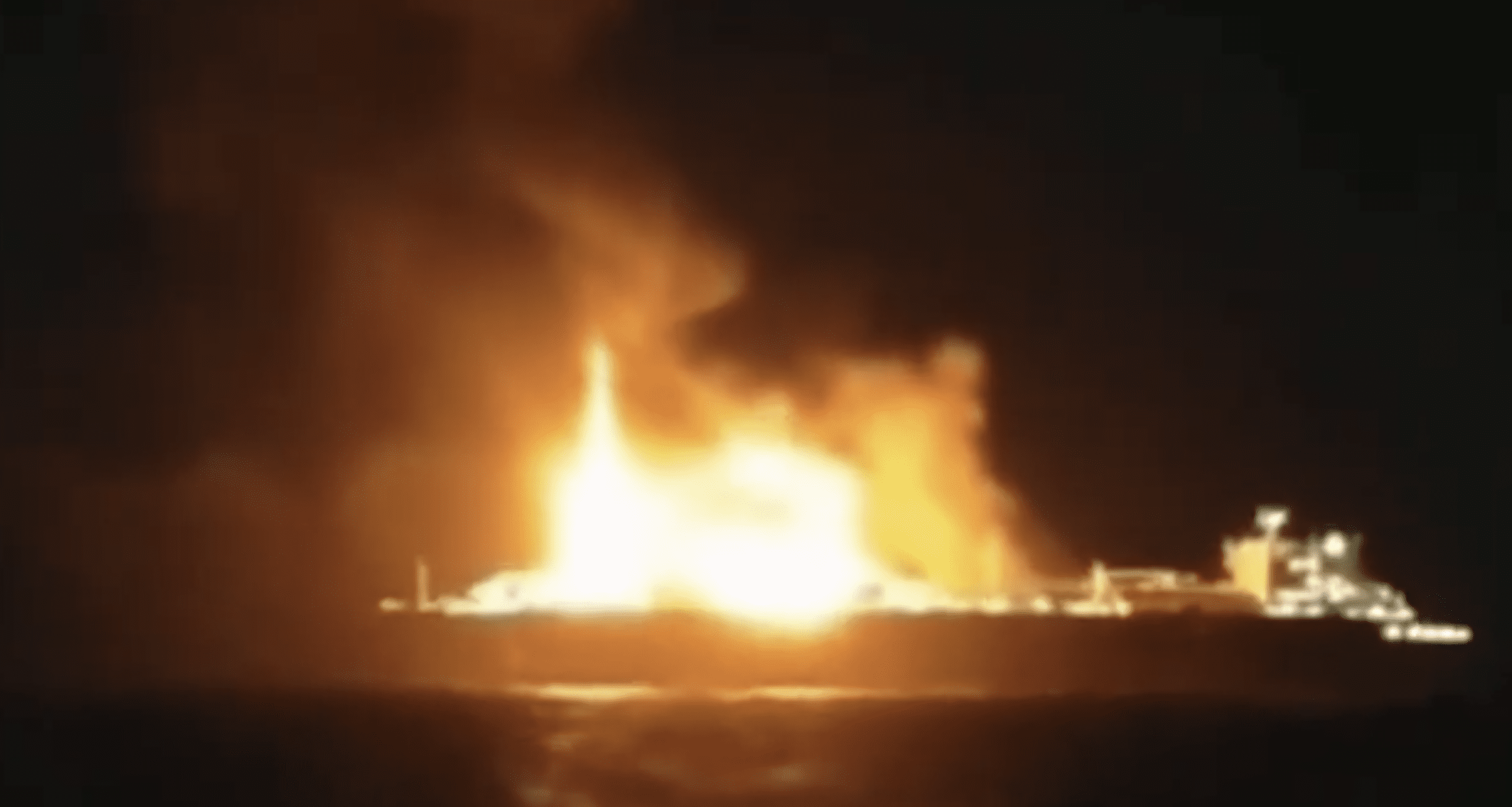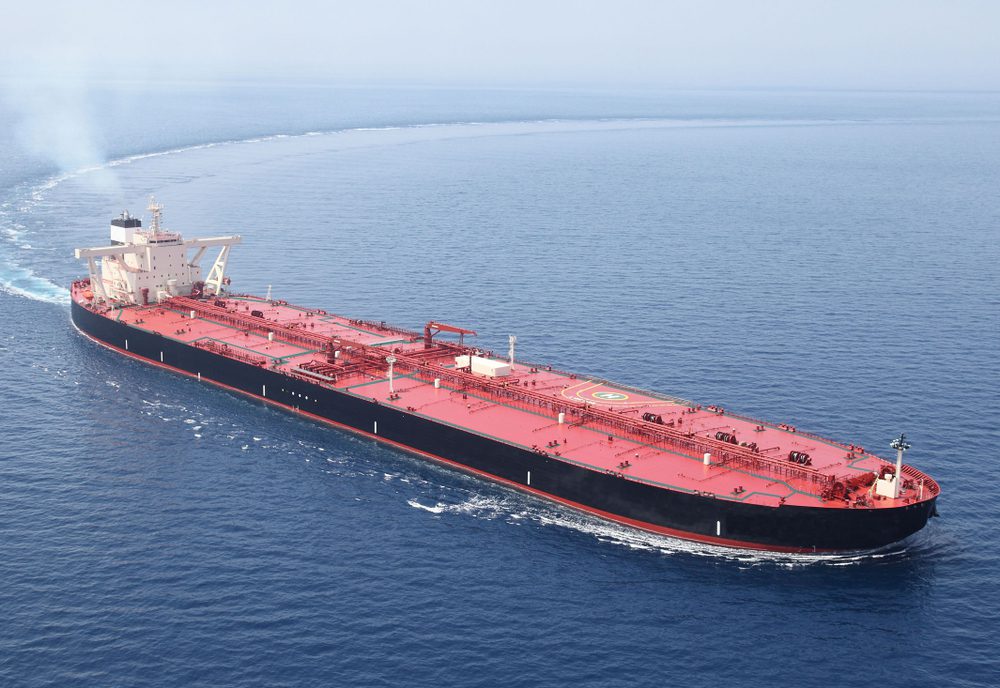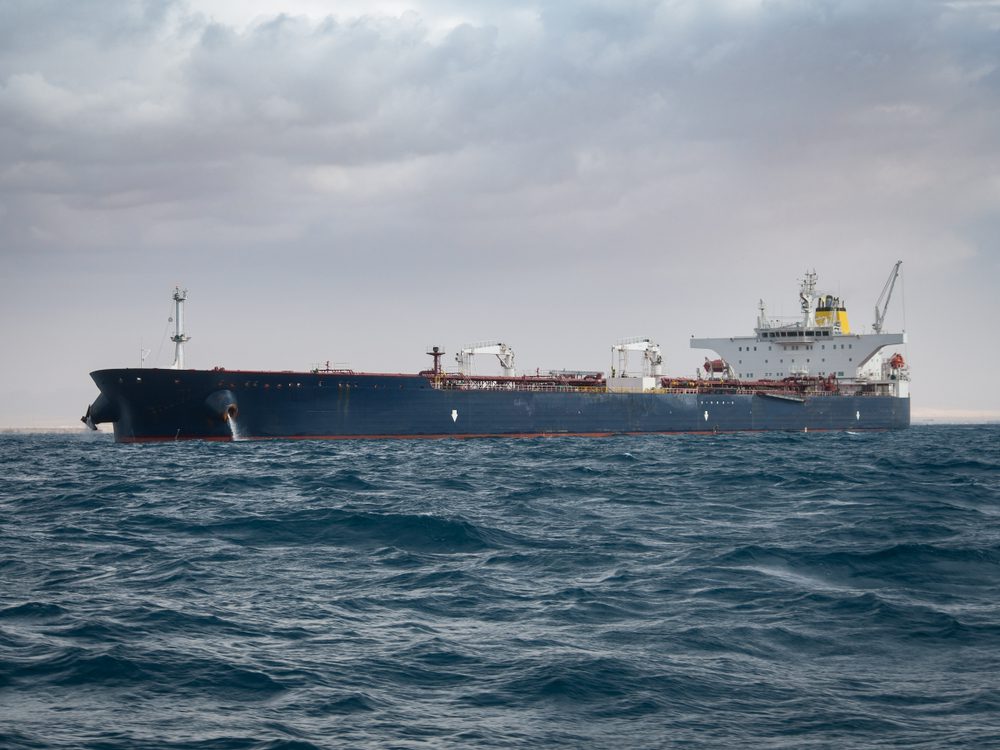By Julian Lee
Feb 21, 2025 (Bloomberg) –A cargo of Russian oil that’s under heavy US sanctions vanished from global tracking systems, evidence of how difficult it will be to keep track of — and enforce — the measures.
The 900-foot oil tanker Meru left Murmansk in the Arctic Sea on Jan. 20, ten days after the US Treasury’s Office of Foreign Assets Control imposed most-aggressive sanctions on Russia’s oil trade — especially those from the Arctic.
The Meru was initially destined for the Indian port of Vadinar, according to shipping information seen by Bloomberg — even if the tanker’s digital tracking system showed “Suez” until it reached the southern Red Sea. At that point, it was changed to “Persian Gulf.”
While the Meru is now visible again on the industry’s Automatic Identification System, it disappeared from vessel tracking systems for just long enough for its cargo to be switched onto another as-yet-unidentified ship.
Related Article: How To Combat Dark Oil Transfers At Sea
The Meru’s signals show it arrived at the entrance to the Strait of Hormuz — an area favored for the clandestine switching of cargoes from one vessel to another — on Tuesday, leaving again the following day and reporting a draft indicating that it had offloaded its cargo.
The identity of the receiving tanker remains a mystery at this time — a fact that may make it easier for the cargo to be discharged without attracting the attention of OFAC.
The shipment falls foul of OFAC sanctions in multiple ways.
The oil was pumped by Russia’s Gazprom Neft, sanctioned as part of the Jan. 10 measures. It was hauled to Murmansk on sanctioned shuttle tankers and stored on the Umba oil tanker, also sanctioned, before being loaded onto the Meru. All of the vessels involved were also blacklisted on Jan. 10.
A maritime database identifies Night Moon Navigation LLC, based in Baku, Azerbaijan, as the manager of the Meru. The company didn’t reply to an email request for clarification of the ship’s movement and cargo transfer, sent outside local office hours.
The Meru subsequently headed for Duqm on the Omani coast, where its signals indicate it arrived on Thursday.
Its presence there — and that it was empty — were confirmed by Tankertrackers.com, a firm that uses satellite imagery, shoreside photography, and real-time AIS to track crude oil shipments, especially sensitive ones.
© 2025 Bloomberg L.P.
Editorial Standards · Corrections · About gCaptain
This article contains reporting from Bloomberg, published under license.

 Join The Club
Join The Club











